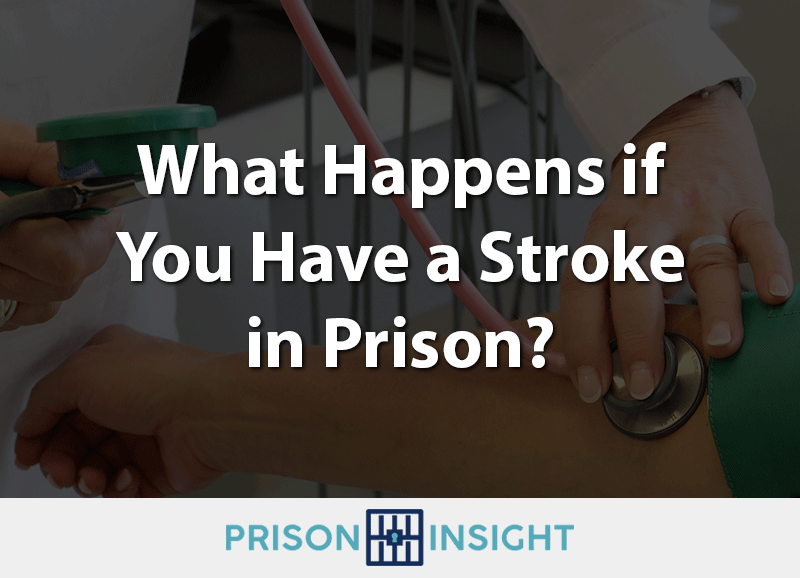One of the worst parts about being in prison was the lack of access to proper medical care. It was the absolute worst.
When you are in prison and you aren’t feeling well — for anything from a headache to pneumonia — you have to fill out a form and go to your housing unit’s, “sick call.” This happens once per day (Monday through Friday), and you literally have to run to get a decent place in line.
Sometimes, you have to wait for two or three hours just to see a nurse. And, you have to have a prescription for all medicine, even Tylenol. The funny thing is, 99 percent of the time in my experience, the doctors and nurses give you a box of Tylenol, no matter what you went to sick call for. It was a running joke in the prison I was in.
It’s incredibly frustrating when you have something simple, like a cold or fever, because you can’t just go to the store and get some Nyquil. In order to take the day off of work or school, you have to go to sick call and obtain permission. To obtain a “lay-in,” you’d have to be on your deathbed.
To make things even worse, some states require inmates to pay to see a doctor. The fee might be as low as $2, but when you make $5 a month, that’s a big expense.
What about emergency medical services or major medical problems? That leads us to today’s blog post: what happens when you have a stroke in prison?
In this blog post, I will cover the following topics:
- How does emergency medical care work in prison?
- Can inmates get an early “compassionate release” when they have a stroke?
How does emergency medical care work in prison?
When an inmate has an emergency medical situation, they must “self-declare,” which is basically prison talk for going to the Emergency Room. If necessary, you will be transferred into the prison’s medical unit or you will be transferred to a local hospital.
When it comes to something like a stroke, a fellow inmate has to get an officer’s attention and they will contact emergency medical personnel. The inmate is taken directly to a hospital for medical attention.
This may sound easy, but it’s actually a complicated process. Anytime an inmate leaves prison grounds it’s a security risk and there is special protocol the officers must follow.
I never had any personal experience with emergency treatment when I was in prison, but I know that they do absolutely everything in their power to avoid taking inmates to the hospital because the state has to pay for it.
In some county jails, inmates who suffer a stroke or have an emergency medical situation can get released on a “medical bond,” so the county doesn’t have to pay for medical care. There are numerous cases on record where officers ignored inmates who were having a medical emergency, and they ended up dying.
“There’s a woman named Traci Weaver. She was an inmate in the Washington County jail in southern Alabama facing a very minor charge, a drug charge, and she was throwing up profusely,” said investigative journalist Connor Sheets. “Blood pressure was way out of control. It turned out later that they found out she had been having a stroke, a severe stroke. She ended up dying and before they took her to the hospital one-and-a-half-miles down the road, jail staff sort of had this long conversation about how they could avoid paying for her medical bills either by figuring out if Medicaid could pay for it or if she had private insurance or something like that. And you know that delay when you have a stroke, obviously it can be a matter of life and death.”
Similar incidents have happened in prisons, but it’s extremely difficult to get information about medical emergencies inside of prison walls.
Can inmates get an early “compassionate release” when they have a stroke?
Compassionate release is a process where inmates can get immediate early release because of a “particularly extraordinary or compelling circumstances which could not reasonably have been foreseen by the court at the time of sentencing”.
Compassionate release is also known as medical release, medical parole, or medical furlough, and it can be mandated by either the court or by DOC officials.
The process for compassionate release varies by county and state, but it usually involves the inmate petitioning the warden and/or the court.
As a rule, this process is granted for inmates with a terminal illness with a life expectancy of less than 18 months who need access to specialized medical care outside of prison walls. Other reasons for compassionate release can be debilitating mental or physical conditions that prevent the inmate from being able to take care of themselves.
Some inmates with advanced age and irreversible conditions like Alzeheimer’s are also eligible for compassionate release.
While a stroke could possibly get an inmate a compassionate release, it’s not a guarantee.
Do you think inmates should be allowed access to proper medical care? Let us know in the comments below.
Sources: How Medical Bond Can Have Fatal Consequences For Someone In Jail https://www.marketplace.org/2019/10/07/how-medical-bond-can-have-fatal-consequences-for-someone-in-jail/ An inmate needed emergency medical help. The jail’s response: See if she has insurance https://www.propublica.org/article/an-inmate-needed-emergency-medical-help-the-jails-response-see-if-she-has-insurance
